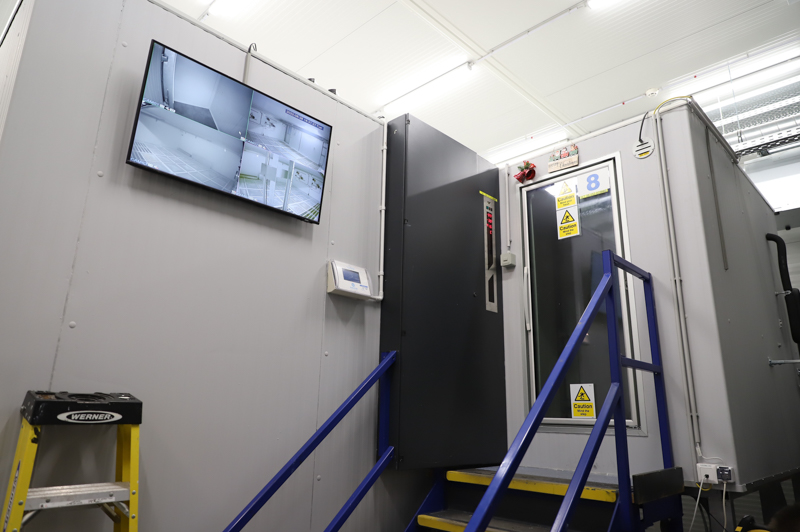
The technical handover of the University of Szeged’s new Biobank facility has been completed, including the installation of advanced storage equipment, biobanking support technologies, and integrated building management and process control systems. The facility is set to begin receiving samples in the next few months.
“The modern, semi-automated biobank storage system was donated by the Spartacus Cancer Foundation, which was established in 2019 to support cancer research in Hungary,” said Dr. Zoltán Veréb, Head of the Regenerative Medicine and Cellular Pharmacology Research Laboratory at the Department of Dermatology and Allergology of the Szent-Györgyi Albert Clinical Center of the University of Szeged, who oversees the Biobank development project as Head of Professional Affairs. He added that a new building was constructed to house the storage system, with the programming of the instruments recently completed.
The facility currently has the capacity to store 1.8 million samples, with the potential to expand to 3 million, depending on the size of the storage tubes. This expansion is a key part of its long-term development plan. While the primary source of samples will be the units of the Szent-Györgyi Albert Clinical Center, the Biobank will also engage in projects with national and international partners.
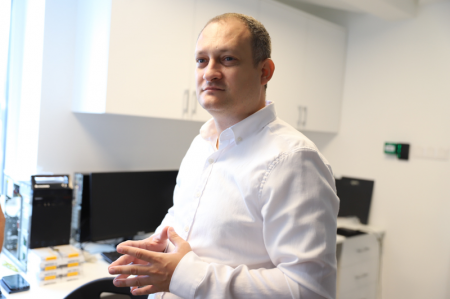
John Les Corps, a representative from LiCONiC UK, oversaw the commissioning of the storage systems.
“Such equipment is predominantly found in China, Australia, or India. For our UK-based company, the Hungarian project presented a unique challenge, requiring the installation of a large-scale unit transported from the United Kingdom to Hungary – an unprecedented task for us. The true measure of success is seeing the system functioning efficiently and as intended,” said John Les Corps. He also mentioned that the assembly process was impacted by the COVID-19 pandemic, with the first wave starting just after the equipment arrived in Szeged.
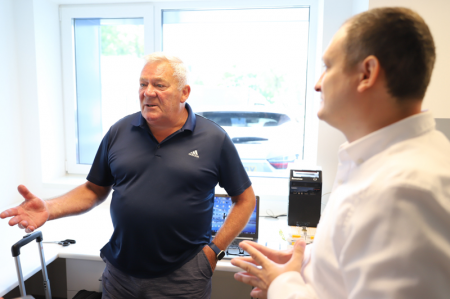
John Les Corps began his career in laboratory robotics and has been working with LiCONiC UK since 2008. At that time, the company already had a partnership with LiCONiC in Liechtenstein, which supplied laboratory incubators to the UK company. LiCONiC in Liechtenstein was the first in the world to manufacture -80°C-rated semi-automated and fully automated storage systems. This innovation, which the UK company adopted 15 years ago, led to the establishment of an independent unit under the LiCONiC umbrella. LiCONiC UK was the first to install such a storage system at the UK Biobank (one of Europe's largest biobanks). Shortly after, they added six more similar storage units and eight -20°C units. This triggered rapid growth, with the technology spreading exponentially. In recent years, thanks to these advancements, they have developed storage systems capable of achieving temperatures as low as -145°C, offering a promising outlook for the future.
“Our most remarkable experience was witnessing the Szeged team's enthusiasm and unwavering dedication to the project. Biobanks typically face initial skepticism, yet the Szeged team remained focused on effective execution from the very beginning. This approach was exceptionally positive and exemplary, especially when compared to other Biobank teams operating globally. In fact, when we first arrived, we were met with an abandoned hangar, yet the local team already had a clear vision of the end result. The transformation has been astounding, resulting in one of the most outstanding Biobanks I’ve had the privilege of seeing. The laboratories established here, combined with the infrastructure, create an ideal environment for success,” the expert explained.
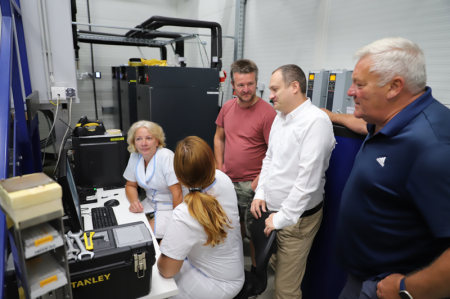
John Les Corps emphasized the responsibility that comes with working in the Biobank, with the facility set to store millions of samples. While the Szeged Biobank is meticulously designed to uphold the highest standards of security, mobility, and visibility for the stored samples, its true value is realized only when those samples are actively accessed and utilized, rather than remaining in storage indefinitely.
In addition to installing, programming, and calibrating the storage system, John Les Corps and his colleague, Tony Kelly, guided the Szeged Biobank team in understanding its functionality and key operational aspects. With a background in robotics and having worked across Europe, Kelly joined LiCONiC UK 14 years ago and quickly became involved in multiple projects.
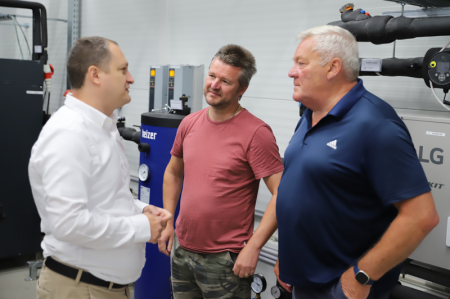
“We have deployed numerous systems across Europe, but the Hungarian project presented a particularly intriguing challenge. This storage system was previously in use and was transferred here from the United Kingdom. The key challenge was programming new software onto an older platform, but we managed to resolve this issue successfully. As a result of overcoming this challenge, robotic biobanking, which is still in its early stages in Hungary, now has the potential to advance significantly. In contrast, in other parts of Europe – particularly in the United Kingdom – it has been well-established for the past decade. However, with advancements like this, Szeged is well on its way to matching the successes of its European counterparts,” explained Tony Kelly.
Original Hungarian text by SZTEinfo
Photos by István Sahin-Tóth

